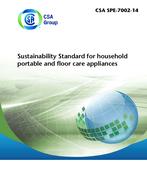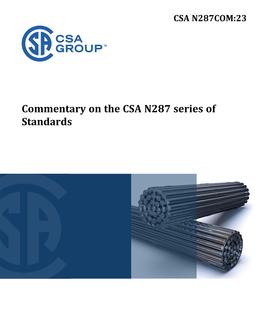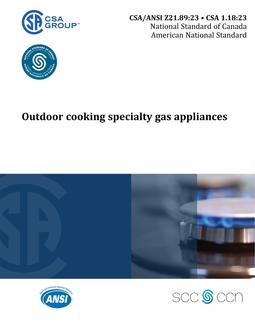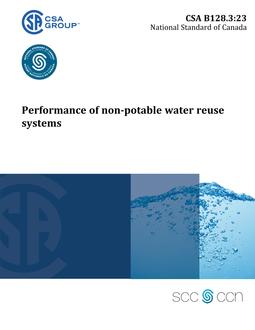
CSA SPE-7002-14
- Comments Off on CSA SPE-7002-14
- CSA
This is the first edition of AHAM 7002/CSA SPE-7002/UL 7002, Sustainability Standard for portable and floor care appliances. This is a non-consensus document.
The environmental performance of portable and floor care home appliances are commonly evaluated on a few environmental attributes such as electricity consumption during use or materials. This Standard on home appliance sustainability for portable and floor care products takes a broader, multi-attribute, and more holistic approach to assessing the environmental impacts of these small home appliances.
The multi-attribute approach was developed using life-cycle assessment (LCA) information along with other key factors such as hot-spot or hot-button analyses influencing product environmental performance. This approach, detailed in Annex A, determined the environmental attributes of portable and floor care appliances for inclusion in this Standard.
Scope
1.1
This Standard covers portable and floor care home appliances intended for household use, including
(a) air treatment appliances;
(b) food and beverage preparation appliances;
(c) counter top cooking appliances;
(d) personal care appliances;
(e) garment care appliances; and
(f) floor care appliances.
See Annex B for a list of portable and floor care home appliances under these six headings.
1.2
This Standard does not cover air treatment appliances containing refrigerants or portable and floor care appliances intended for commercial use.
1.3
This Standard does not cover portable or floor care appliances that are powered by primary cell batteries.
Note: As defined by Merriam-Webster (www.m-w.com), a primary cell is “a type of battery that converts chemical energy into electrical energy by irreversible chemical reactions”. A common example of a primary cell is the disposable battery.
1.4
For purposes of this Standard, the product evaluation includes those consumables used as part of the normal function of the product as well as parts or accessories that are packaged with the product.
1.5
This document constitutes the First Edition of this Standard. Companies that will use this Standard in the beginning for assessment of the environmental performance of their products will begin with the First Edition. If and when subsequent editions of this Standard are published, these subsequent editions might carry an “effective date” that provides manufacturers with time to meet the new requirements and enables them to identify their products that have been assessed to the new edition.
1.6
In this Standard, “shall” is used to express a requirement, i.e., a provision that the user is obliged to satisfy in order to comply with the Standard; “should” is used to express a recommendation or that which is advised but not required; and “may” is used to express an option or that which is permissible within the limits of the standard.
Notes accompanying clauses do not include requirements or alternative requirements; the purpose of a note accompanying a clause is to separate from the text explanatory or informative material.
Notes to tables and figures are considered part of the table or figure and may be written as requirements.
Annexes are designated normative (mandatory) or informative (nonmandatory) to define their application.
Product Details
- Edition:
- 1st
- Published:
- 08/01/2014
- ISBN(s):
- 9781771391214
- Number of Pages:
- 80
- File Size:
- 1 file , 2.3 MB
- Product Code(s):
- 2422180, 2422180, 2422180



